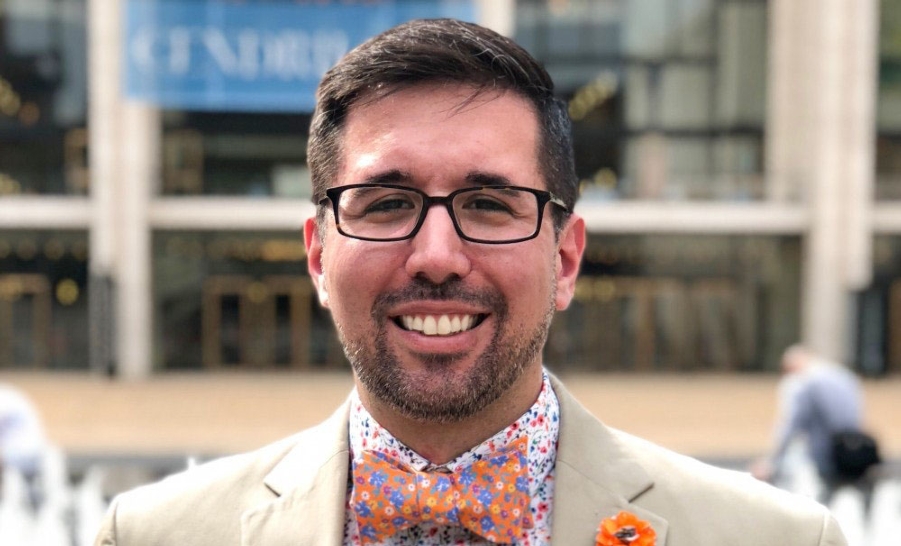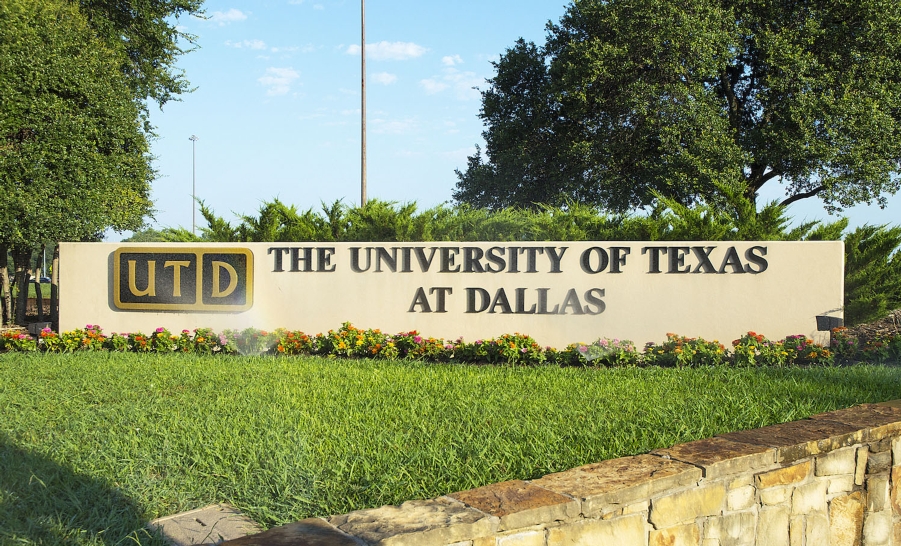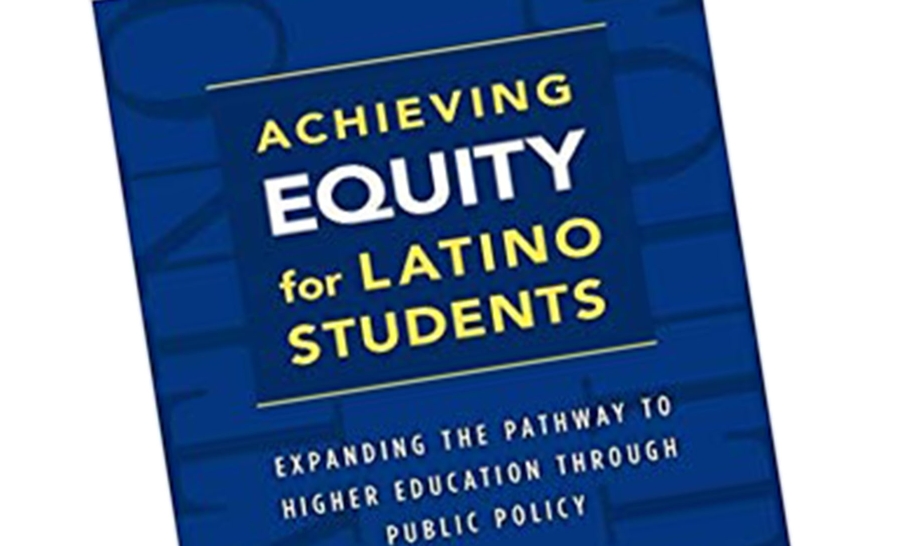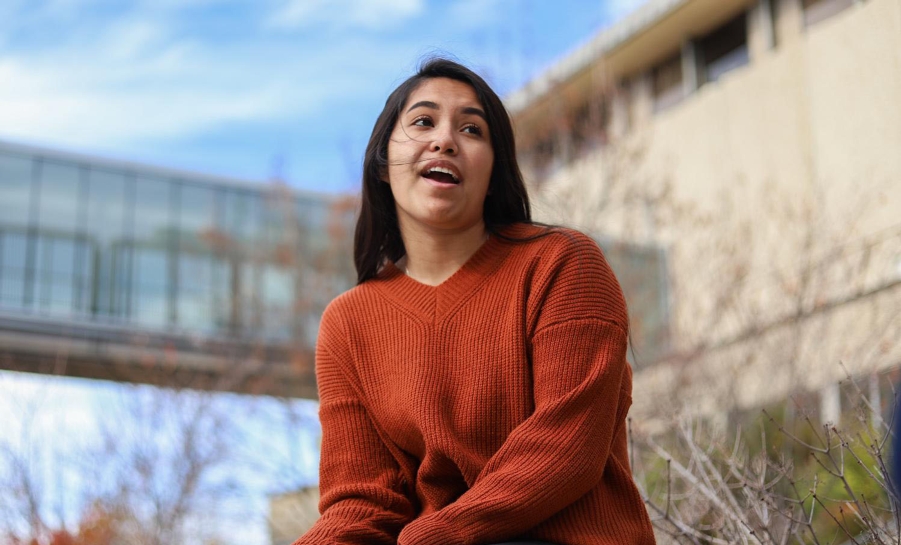Mānoa Access Initiative (MAI): Disrupting the Status Quo
J. Māhealani Quirk & Jennifer Pagala Barnett, University of Hawaiʻi at Mānoa / FirstGen Forward / April 07, 2021
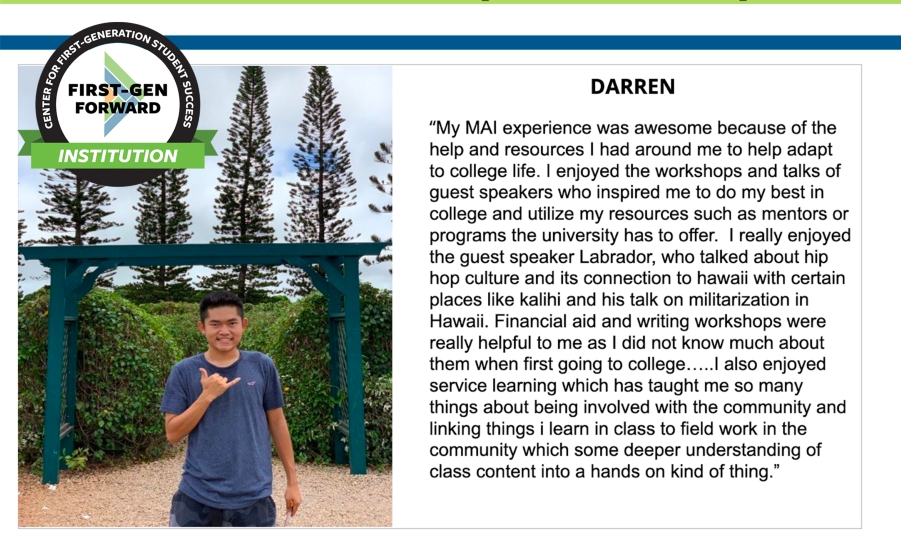
The University of Hawaiʻi, Mānoa’s (UHM) Mānoa Access Initiative (MAI), named for its cultural grounding to the Hawaiian word, mai, translated to mean, “come, come here, and welcome,” is an innovative pathway for those students prematurely marked as “not college-ready” (Pukui & Elbert, 1986, p. 220). This entry into college initiative supports underserved and underrepresented populations, challenges current institutional pathways that limit access, and demonstrates that high school GPAs and standardized test scores do not equate to a student’s ability to persist and succeed (Okamura, 2008). MAI disrupts current practices informed by westernized ideologies and provides evidence that effective student affairs and academic affairs partnerships allow students to not only be included in the academy but, more importantly, to thrive once they’re there. The collective and individual efforts to expand equity, inclusion, and social justice at UHM brought together the Office of Student Equity Excellence and Diversity (SEED), Admissions, Native Hawaiian Student Services (NHSS), and the Department of Ethnic Studies to co-create the Mānoa Access Initiative partnership.
Although MAI is not exclusively for UHM first-generation students, many of our MAI students are first-generation. All participants are Hawaiʻi residents who come from both public and private schools. A large portion of students are of Native Hawaiian or Filipino ancestry, who historically have been and continue to be underrepresented in academia.
This program has given me opportunity to be successful and confident in college...MAI really helped to shift my image of myself.
As first-gen students learn to navigate all the “firsts” of being in college, those in the Mānoa Access Initiative receive holistic, wrap-around support and benefit from MAI’s unique structure which has intentionally integrated student affairs professionals in the classroom. Removing the stark delineation of academic affairs and student affairs duties, responsibilities, and support to students, the Mānoa Access Initiative has created a praxis model that has increased student’s sense of belonging and exposure to campus resources and counseling while providing a space for students to interrogate Hawai’i social structure, their various and intersecting identities, and their place in the community. This innovative approach and delivery was designed to attend to student success from every angle.
Programmatically, MAI students are enrolled in a designated Ethnic Studies 101 (ES 101) section. The course is structured with two lectures per week on Monday and Wednesday by an ES professor and is supplemented with one success lab session on Friday(s) with a student affairs professional and an Ethnic Studies Teaching Assistant (TA). Success lab sessions facilitate an intimate space to discuss and process the content from that week but also provide students with critical tips, information, and support to be successful at the University of Hawai’i, Mānoa. MAI has been fortunate to work with many success lab instructors across campus, who represent student affairs professionals from Housing, Advising, Native Hawaiian Student Services, Student Equity, Excellence and Diversity, and the College of Education, many of whom were first-gen college students. The Mānoa Access Initiative’s ability to increase first-gen visibility and representation of both students in the program and professionals administering the program has been crucial to its success. MAI has disrupted the present absence of FG students at the University of Hawai’i, Mānoa. Centering Hawai’i, its people, and the importance of place in MAI’s curriculum through an Ethnic Studies lens has afforded students a space to explore, consider, and develop their personal sense of self, interrogate their identities, and critique the broader systemic and structural challenges faced by traditionally underrepresented students.
The Mānoa Access Initiative’s success is only truly validated through the mo’olelo, narrative, and experience of students who have participated in the program. The MAI team would like to share two student mo’olelo spotlights:
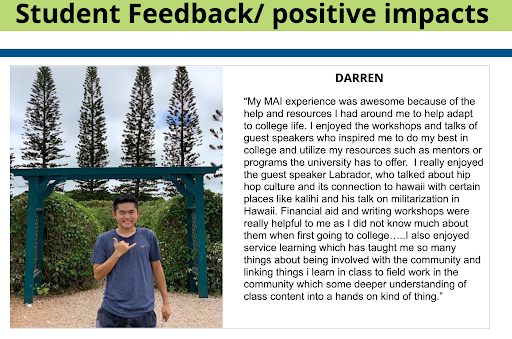
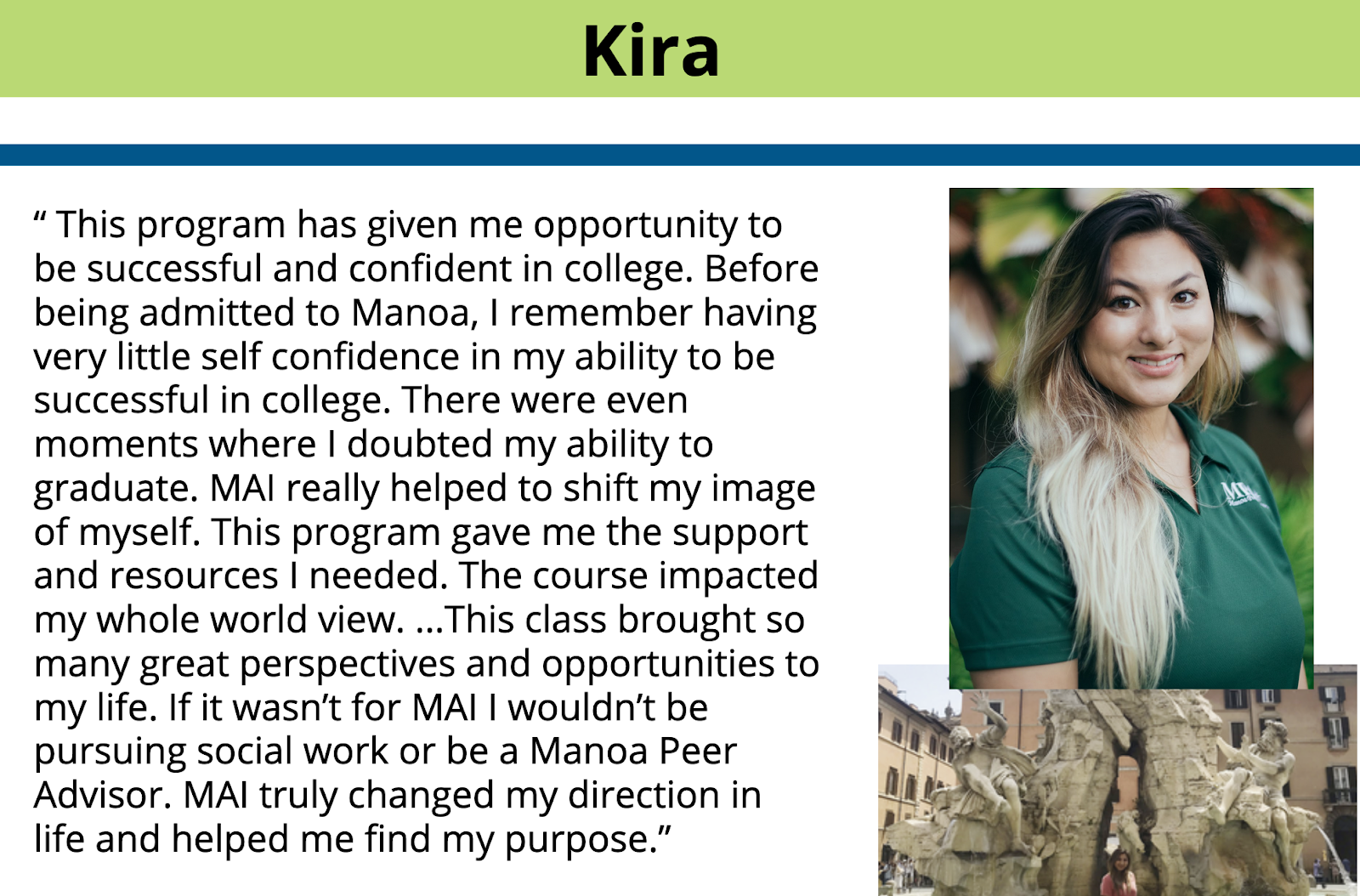
As shared in the mo’olelo above, student participants in the Mānoa Access Initiative deepened their awareness and use of campus resources, reported an increase in self-confidence, developed a broader consciousness and relationship to place and community, and were inspired to create new imaginaries for themselves.
The ripple effect of MAI has emanated even further and has had profound impacts on program collaborators including success lab leaders, the ES professor, and invited guest speakers. As noted earlier, the majority of the MAI team are first-gen students who have found healing, liberation, and joy in the reciprocal learning that the program has presented. These individuals work to create enclaves for underrepresented students, advocate and create programs that work with and in tandem with MAI, and provide transformational mentorship and counseling that extends beyond the bounds of academia. It is their commitment, energy, love, and hope that gives life to the Mānoa Access Initiative and is the foundation for the program and student success.
For more information on University of Hawaiʻi at Mānoa’s approach, please visit their website here.
References
Okamura, J. Y. (2008) Ethnicity and inequality in Hawai‘i. Philadelphia, PN: Temple University Press.
Pukui, M., & Elbert, S. (1986). Hawaiian dictionary : Hawaiian-English, English-Hawaiian (Rev. and enl. ed.). University of Hawaii Press.
